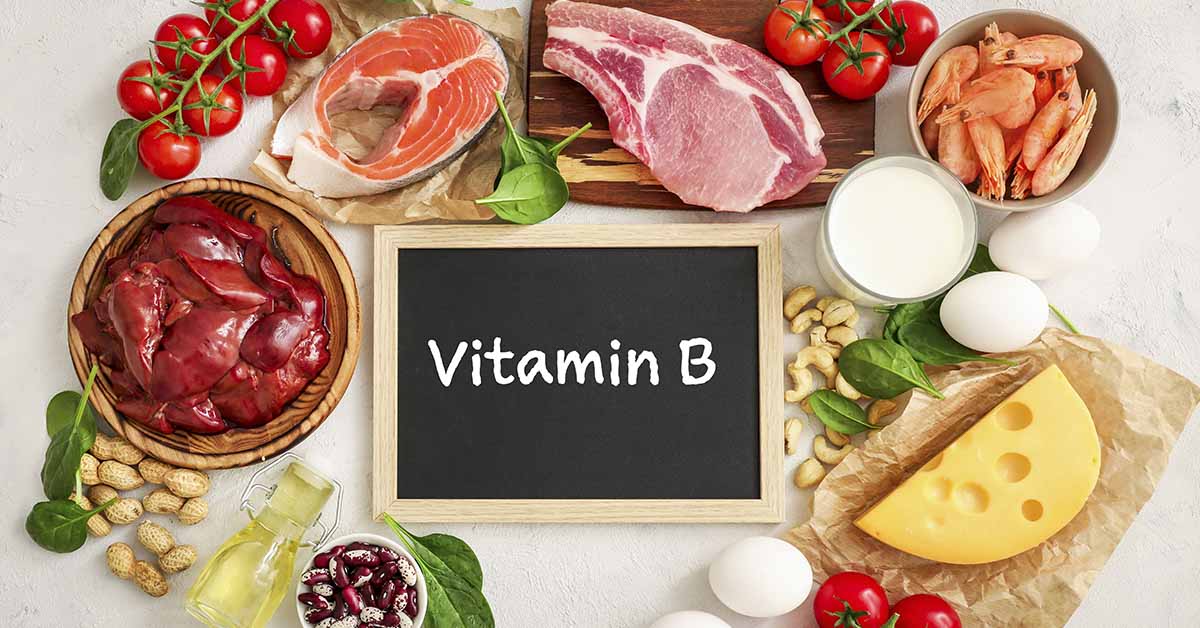Alcohol is known to cause liver damage, and in particular, alcoholic fatty liver disease. However, this disease can also arise unrelated to alcohol consumption. Nonalcoholic fatty liver disease (NAFLD) is a term describing many conditions caused by fat buildup in the liver. Severe or aggressive cases of NAFLD may be diagnosed as nonalcoholic steatohepatitis (NASH). There are presently no medications to treat NASH. However, a recent study found that vitamin B12 and folate may help reverse diseased livers’ inflammation and fibrosis.
What is Nonalcoholic Fatty Liver Disease?
Nonalcoholic fatty liver disease affects almost one in four Americans, according to the National Institute of Diabetes and Digestive and Kidney Diseases, and the number has only been rising. Therefore, researchers look to learn more about the disease, especially its severe form, NASH (nonalcoholic steatohepatitis). Since alcohol is not a cause of this condition, there is much to learn about the factors leading to it.
Remember, nonalcoholic fatty liver disease is an umbrella term for many conditions involving fat buildup in the liver. Some health conditions increase the risk of NAFLD, including obesity, high blood pressure, high cholesterol, metabolic syndrome, type 2 diabetes, and insulin resistance. Plus, people with NAFLD are at risk of developing NASH, which can cause scarring and permanent liver damage. NASH also increases the risk of liver cancer.
To better understand the disease, scientists at Duke-NUS Medical School in Singapore examined an amino acid called homocysteine, which seems responsible for the inflammation in NASH. The high levels of homocysteine make a protein called syntaxin 17 unable to do its function of removing dead and unhealthy cells, leading to inflammation and fibrosis in the liver.
“It is very important to catch NASH at the beginning stages, when inflammation is just starting, because there are reversible and nonreversible stages. You have to catch it when the monster is first rearing its head,” says Madhulika Tripathi, MD, co-leader of the study and senior research fellow with the laboratory of hormonal regulation in Duke-NUS Medical School’s cardiovascular and metabolic program. Scientists knew that NASH is associated with high levels of homocysteine, although they didn’t know its role in the disease until now. [1]
Read: Why Up to 80% of Us are Deficient in Magnesium
The Vitamin B12 and Folate Trial
So, in a two-part study, researchers tested if adding vitamin B12 and folate could reverse inflammation and fibrosis. Using mice and cell cultures, the researchers found that vitamin B12 and folate helped restore the function of syntaxin 17, thereby reducing the fibrosis and inflammation associated with the disease. [2]
“…Remarkably, we found vitamin therapy could prevent and reverse fat accumulation, inflammation, and fibrosis in two different mouse models of NASH,” said study author Dr. Paul M. Yen. He’s the study’s author and professor of medicine, and a member of the Duke Molecular Physiology Institute in Durham, North Carolina. “Our preclinical findings suggest that vitamin therapy could be a first-line therapy, particularly in patients with low serum B12 and folate levels and elevated serum homocysteine levels.” [3]
This study provides new insight for a disease with limited research. However, further studies are needed to confirm these findings. Plus, trials with human participants may determine how to best treat NASH. Still, vitamin B12 and folate may become a helpful treatment or preventative treatment for those at risk of NASH.
“Our preclinical studies suggest that NASH patients who have pernicious anaemia, gastritis, prior gastric bypass surgery, diabetes and taking metformin, or are vegetarians with low folate/B12 intake are several populations that may be at potential risk for worsened NASH,” said Yen. “They most likely should be screened for serum B12, folate, and homocysteine levels since they could benefit from vitamin B12 and folate therapy. Further clinical studies need to confirm whether vitamin therapy improves NASH in these patients.”
A Potential Treatment
During the trial, vitamin B12 and folate effectively reduced homocysteine levels, possibly because these micronutrients are metabolized, stored, and activated in the liver. Plus, previous research has connected vitamin B12 deficiency and NAFLD. But it’s unclear if that’s a coincidence or if the vitamin deficiency is caused by the other conditions that lead to NAFLD (such as obesity and diabetes). For example, there was a previous study with people with NAFLD taking vitamin B12.
The researchers noticed a correlation between vitamin deficiency and increased homocysteine levels. However, they couldn’t conclusively say the supplement lowered the liver inflammation since the participants also lost weight during the trial, and weight loss tends to have that same effect. [4] In the meantime, there are no drugs approved by the FDA to treat nonalcoholic fatty liver disease. So treatment often involves lifestyle changes, especially around diet and exercise.
“If you lose weight, your liver health improves,” says Tripathi. With that in mind, these studies bring hope for new potential treatment options for those with NAFLD and NASH.
Keep Reading: The Poorly-Understood Role of Copper in Anemia
Sources
- “Early Research Reveals Key Player in Nonalcoholic Fatty Liver Disease.” Everyday Health. Kaitlin Sullivan. October 4, 2022
- “Vitamin B12 and folate decrease inflammation and fibrosis in NASH by preventing syntaxin 17 homocysteinylation.” Journal of Hepatology. MadhulikaTripathi. November 2022
- “Vitamin B12, folate could help treat severe nonalcoholic fatty liver disease.” Medical News Today. Jessica Norris. August 12, 2022
- “The effects of vitamin B12 supplementation on metabolic profile of patients with non-alcoholic fatty liver disease: a randomized controlled trial.” Scientific Reports. Hamid Reza Talari. August 18, 2022

